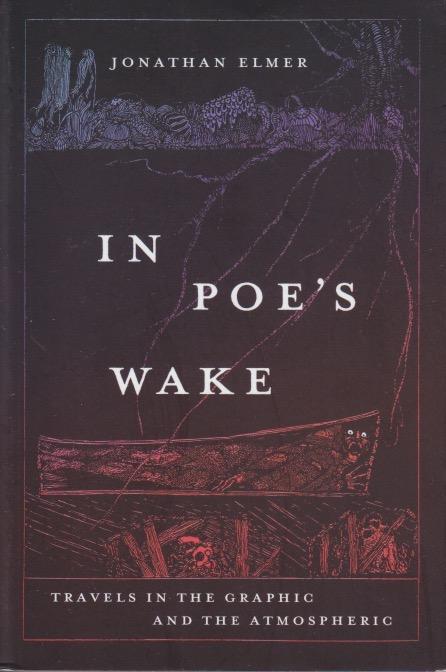
It’s personal and it’s deep. My appreciation for Edgar Allan Poe, that is. I’ve read a few biographies of him over the years, but my engagement with him feels more like that of a boon companion. Still, I learn a lot from looking at him from different angles. (And yes, he will be in my forthcoming book.) Jonathan Elmer’s In Poe’s Wake: Travels in the Graphic and Atmospheric caught my attention but I can’t remember exactly how I heard about it. This was a case where the back-cover copy won me over, noting as it does, that Poe’s image is everywhere. Still, I approach things as an historian. How did this lead to that? And I must confess that I’m not a great fan of heavily theoretical work (I see plenty of it). As soon as I see Deleuze, my eyes begin to glaze over. Do we have to go there again?
All of which is to say Elmer’s book is erudite and, at times, quite academic. I learned a lot from it, particularly the first two chapters. Much of the rest of it was a bit too theoretical for my plebeian tastes, but I was still learning as I went. I hope. I guess I was thinking it would be more of a history of how Poe ended up, for example, on the cover of Sgt. Pepper’s Lonely Hearts Club Band. Or how the Baltimore Ravens got their name. Or even how the Ultima Thule daguerreotype became so ubiquitous. These may well be impossible questions to answer, even as some of us are fool enough to rush in and try. In academia, the theoretical is a much safer approach. It impresses Deans and others in the department.
I occasionally listen to famous people talking about fame. How it destroys some people and obliterates aspects of others’ lives. Poe was reasonably well known during his lifetime, but not famous on the level that, say, the internet can instantly make you. Or even TikTok. Even back within my lifetime (which, I gather, is about the same as Elmer’s) Poe’s influence has grown dramatically. His was a household name in my childhood, at least among a certain type of reader. It wasn’t unusual to find people who’d never heard of him. I suspect that is also true today, but Poe looms large over October and even the New York Times nods in his direction when the days grow shorter. Like most writers, Poe isn’t who we think he is. Elmer’s book does indeed explore his wake, and it is one that continues to cause waves over the centuries.
